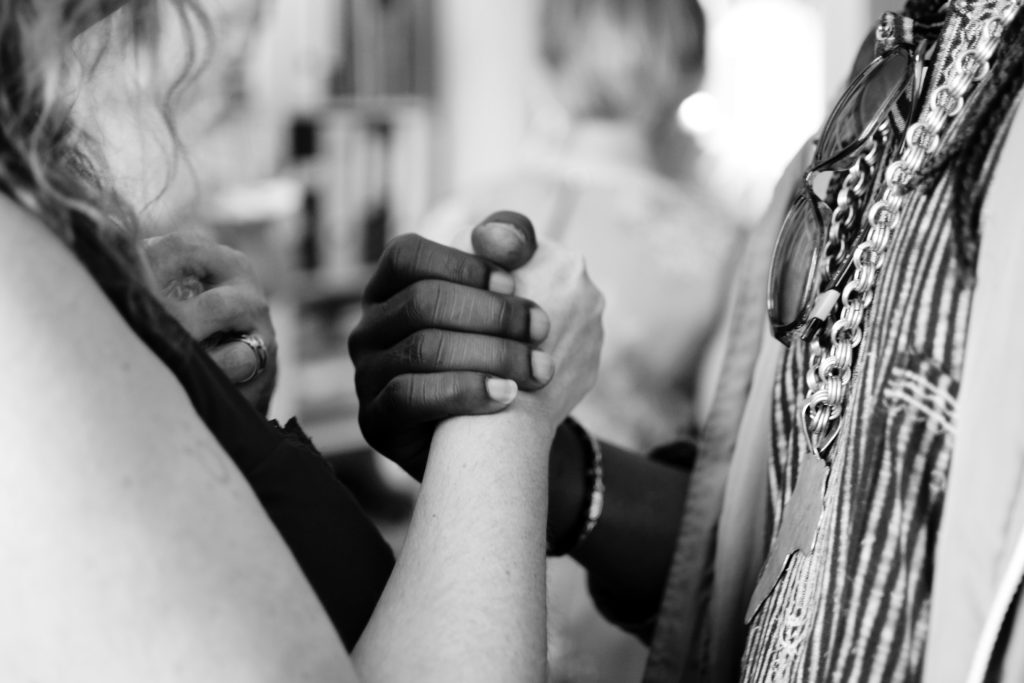 I know I wasn’t the only mom whose gut sunk like a stone when I heard of the death (“passing” seems a misnomer) of George Floyd. Just weeks after our family discussion about Ahmaud Arbery, we sat down in lieu of online church to talk again about racial discrimination.
I know I wasn’t the only mom whose gut sunk like a stone when I heard of the death (“passing” seems a misnomer) of George Floyd. Just weeks after our family discussion about Ahmaud Arbery, we sat down in lieu of online church to talk again about racial discrimination.
Truth: Sometimes I wish I didn’t tell you I’d help with “uncomfortable conversations…worth having.”
But here’s another truth: Those of you readers of color probably didn’t have an option for this uncomfortable conversation with your kids.
I’ve spent the last two weeks talking with friends of color, friends of…less color, and the wife of a black police officer, his body literally black and blue. And I’ve chosen silence on the blog these last two weeks for two reasons.
- Not writing about race was tone deaf–as if this injustice wasn’t worth our concern, our tears, our anger. No matter our ethnicity. (Check out The Gospel Coalition: Oh God, Make Us Angry.)
- Writing about it cavalierly, or as if I was an expert, also felt unacceptable. Texts and talks between friends and I, heavy with concern, continually repeated the word “complex.”
So in lieu of a blog post, I decided to wait instead for an article I’ve just published with FamilyLife.com, with the gracious editing wisdom of friends on many sides of this grief faced by our nation–and the Church. (I needed a lot more voices than one weighing in on this one.)
The article: Racial Discrimination Ends in Your Living Room.
In it, you’ll find lists of practical ways to help your kids end racial discrimination, and questions to ask to take them deeper in your discussions.

Shhhhh.
While discussions surrounding race are exploding on social media, some of the most profound changes in the human heart occur in the context of relationships.
My own relationships have continued to carve away at me even in the past two weeks. Conversations, human to human, are shaping me in ways I’ve needed to be shaped.
A friend reminded me recently of the Be the Bridge Facebook group for racial reconciliation, where the first rule reads as follows: “We ask ALL members to take 3 months of silence to be actively listening and learning.”
Somehow this reminds me of one command that’s stuck out to me lately as I’ve studied Ephesians: the command to be tenderhearted (4:32). To intentionally be soft and receiving.
That command–and, it turns out, my heart–are harder than you think.
Let’s change the world, and start at our dining room tables.
CLICK TO READ “RACIAL DISCRIMINATION ENDS IN YOUR LIVING ROOM”
Like this post on ending racial discrimination? You might like
Spiritual Life Skills: 10 Ways to Teach Compassion (with book list!)
Spiritual Life Skills for Kids: Living in Community












![Now You're Speaking My [Love] Language Now You're Speaking My [Love] Language](https://www.janelbreitenstein.com/wp-content/uploads/2015/08/love-languages-text-1.jpg)





Leave a Reply